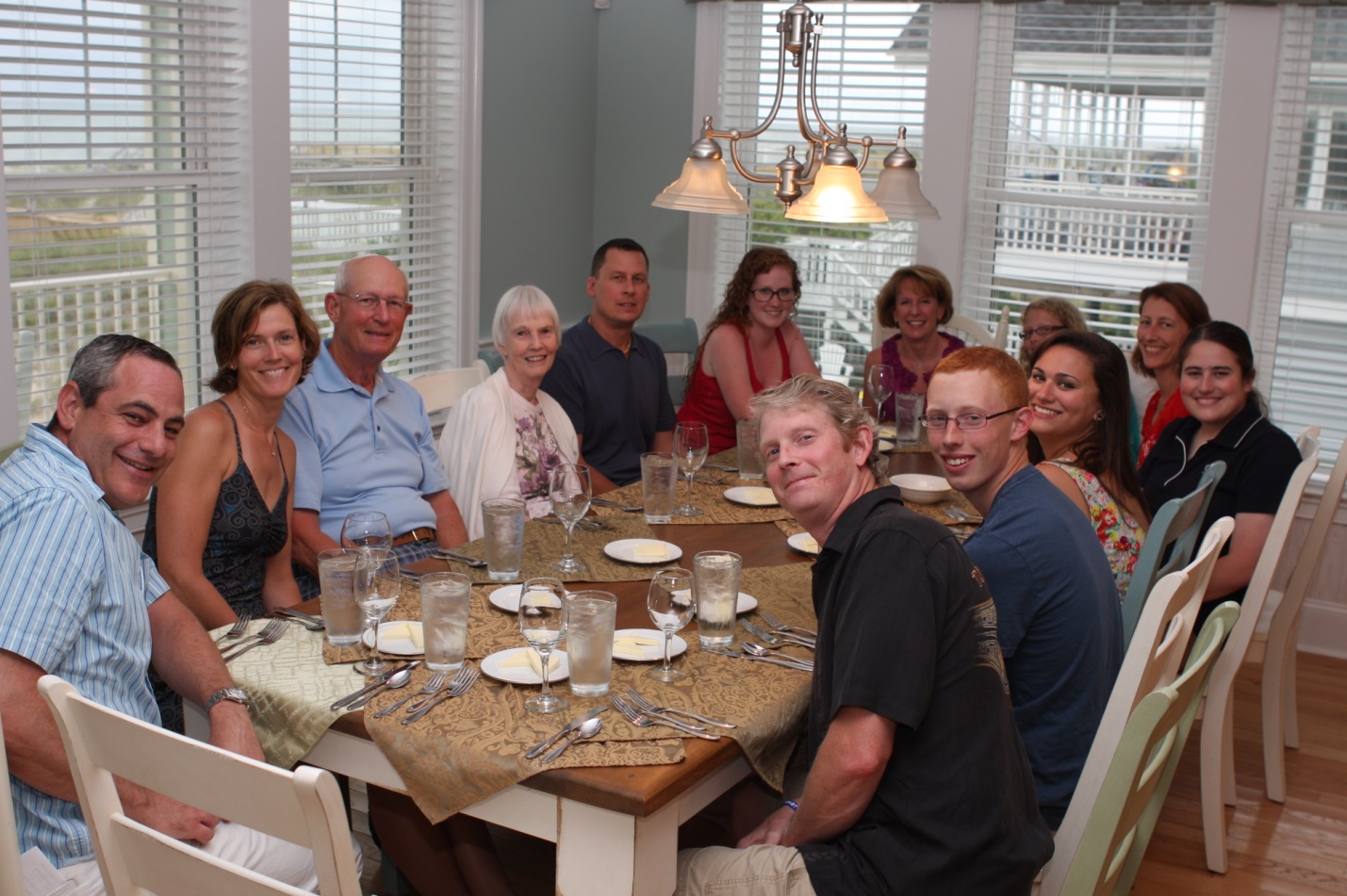As a young social worker leading workshops for The Family Dinner Project (FDP), I’m often teased that I’ll be a family dinner expert by the time I have kids of my own. While my year with FDP has taught me a lot, I think I’ve learned even more from my own extended family.
I interviewed for my position at The Family Dinner Project in early August of last year. One part of the interview process fell during my family’s annual trip to Garden City, South Carolina; a trek my father has been making with his parents, sister and brother since he was a child. The night before the interview, I sat down to family dinner with three generations of my family. I had been a ball of nervous energy all day, but during dinner I breathed a sigh of relief. If there’s one thing my family is good at, it’s dinner.
Now, before you get that Norman Rockwell picture stuck in your head, I would never say my family is perfect at the table. We’re loud; we argue about religion and politics, and we have a tendency toward sarcasm. We run the full gamut of picky-eaters: from severe allergies to strong preferences, to a vegetarian, a pescetarian, and one I (lovingly) call our “starch-atarian.” I bet if you asked each member of my family what makes us good at family dinner, you’d hear a different answer. But to me, the reason is simple: practice. As with virtually anything in this life, the more time you spend on it, the better you become. You keep what works and discard what doesn’t.
Recently, as FDP’s Director John Sarrouf and I trained facilitators to run our parent workshops, one of our trainees remarked that the reason family dinners ran so smoothly in her house was because each of the children knew who liked what element of the meal. They surreptitiously swapped side dishes until everyone had exactly what pleased them. This year, I laughed when I saw my 17 and 18-year-old cousins angling to sit near my grandmother, who never finishes her steak and might pass it along to one of them. Later in the meal, and without hesitation, my sister grabbed the cherry tomatoes off my salad because she knew I wouldn’t eat them.
At the table this year, there was a lot of joking about my status as a family dinner “expert.” I shared a few games with everyone (starting with Rose and Thorn, of course), but I’m about to tarnish my reputation because the truth is, I’ve been stealing ideas from my own family this whole time.
My youngest cousin (now 13 but in my head perpetually a baby) has been a huge driving force behind fun and conversation at our family dinner table, and I regularly draw on her ideas in my work at FDP. She used to decorate the table with name cards in order to get involved in dinner preparation—one year she even researched what each person’s name meant and included that information on the card (FYI, Grace means “God’s gift to man”). On Thanksgiving several years ago, she insisted that we do a “go-round” so each person at the table could state something for which we are thankful. But you don’t need to save this for Thanksgiving. Both the name cards and the gratitude exercise are conversation starters you can use any time to ensure everyone feels included and involved in family dinner.
I’ve been with FDP for about a year now, but I’ve been working on my own “family dinner project” my whole life. If I’m good at the whole dinner thing by the time I have a family of my own to feed, it’s because of them. So if you’re struggling with family dinners, here’s my “expert” advice: keep practicing.
